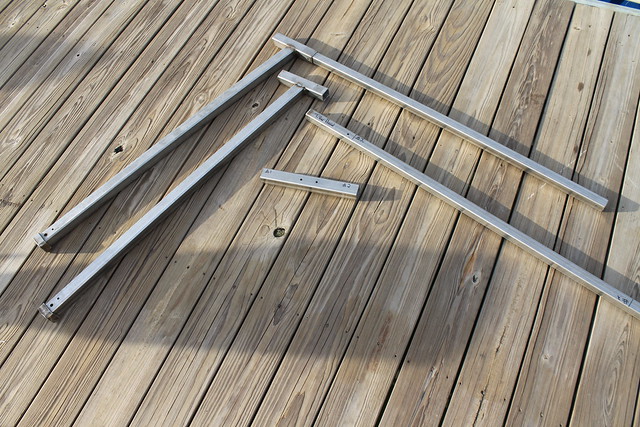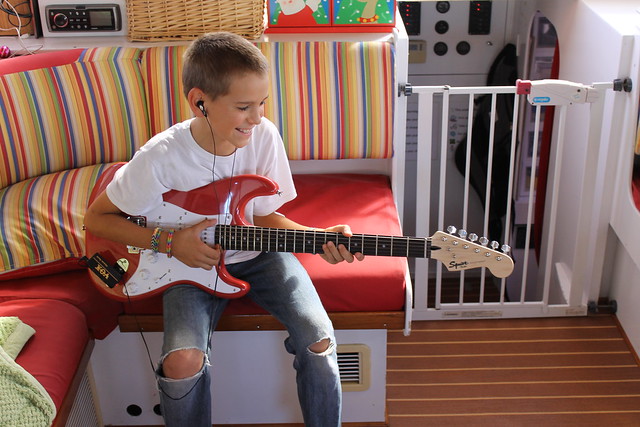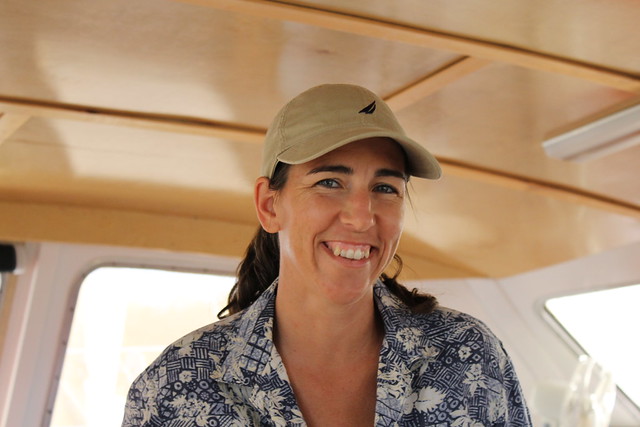Jay has attempted to write on this topic, but he said it was too hard. I thought I’d give it a go, but it means admitting a few painful things, so bear with me.
Reasons we like to travel (or, why we sold a house and bought a boat):
• The freedom and independence
• Openness to new experiences, people, and places
• The simplicity of traveling with a family inside your home
• It’s fun, beautiful, and satisfying
• We learn new things
• It’s less expensive than life on shore or connected to a dock
• Love of Change
Why we like living in a marina (or, why it’s so hard to leave the dock):
• Comfort: nice laundry room, hot showers, convenience of a car
• Good friends on shore
• We like the town we’re in
• Sometimes we need a place to “sit tight” so we can work uninterruptedly
• Illusion of safety from bad weather or mishap
• The boat needs fixing, and is never “ready”
• Aversion to Change
So what’s wrong with us?
A guy stopped by in his dinghy one day and commented on our boat. He had been cruising with his family and thought we had a good thing going, but couldn’t figure out why we were sitting at a marina when we could, ostensibly, be cruising in the Caribbean somewhere. We ourselves feel frustrated that it has taken so long to do the things for which we bought the boat in the first place. Sometimes we don’t travel because our original goals were unrealistic—whether it’s because we still need to be working, or because the boat needs more than we thought it would, or because we have more children than we ever dreamed we’d travel with. Other times, we just get stuck (call it inertia). Like after Rachel was born; we just grew comfortable and could not get ourselves to untie the boat, even though we were physically ready to leave and had places we wanted to go. It may be due to circumstances beyond our control. We’ve been trying to leave Ft. Pierce to go to the Keys for a few weeks now. We’ve done all our last-minute projects, provisioned the boat, done the last load of laundry, checked the systems, waited for weather, and said good-bye to our friends. But at the last moment, we decided to call ahead and found out that there’s no mooring ball available right now. And sometimes, it’s just plain hard because we choose not to do things the easy way. Making something as simple as, say, a PBJ, involves grinding grain to make bread, pureéing peanuts for peanut butter, and picking berries to make jam. Trip planning takes on a whole new dimension for people like us.
We always feel a sense of elation when we break loose, but it comes with a simultaneous feeling of fear and pressure. When we try to leave and have to rethink, postpone, or abort, Jay and I respond differently. Jay feels a sense of relief, because living in a familiar place feels safe and comfortable, whereas sailing in the ocean leaves one feeling out of control and vulnerable. I, however, feel an overwhelming sense of disappointment which dredges up feelings of failure that come from some primal place which defies logic. He heaves a sigh and I start crying. I immediately feel like we’re never leaving, like the whole point of living on a boat is to go somewhere, and like all my preparation has been for naught. He argues logically (thank God) that we are already successful, that we’re raising our family the way we always wanted to, and that the travel is a bonus. Plus, he reminds me, we like it here; that’s why we’ve stayed so long. Of course, he’s right, and it takes me less time to realize it each time, but I still can’t seem to control my immediate emotional response, and it brings him down. It’s totally ridiculous—I really wish we could just have a good laugh about it and say, “Oh, well, we’ll try again later.” It makes me wonder if maybe we don’t have what it takes to cross oceans. That’s the sort of thing you don’t find out until you’re in the middle of it. Or maybe we still are learning how to work as a team, how to be patient, and how to “go with the flow.” In any case, the other thing about us is that we’re damned stubborn, so we won’t be giving up on Take Two or the traveling life anytime soon.



